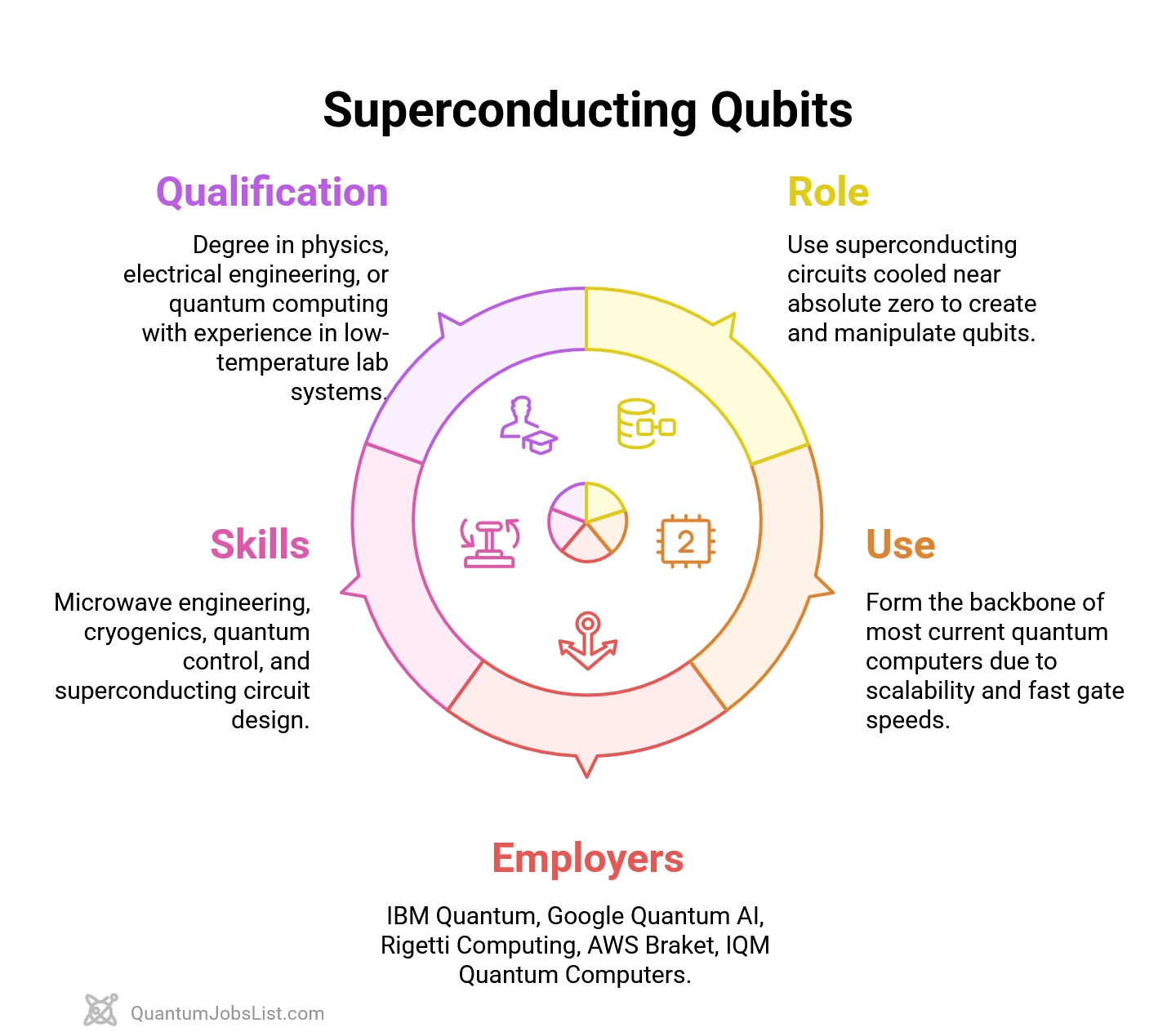Superconducting Qubits Jobs













































Search jobs
Know the Basics
The most popular type of quantum bit used by companies like IBM and Google; it's made from superconducting circuits cooled to near absolute zero, where electricity flows without resistance.
With many thousands to millions of physical qubits likely required for the quantum processors of the future; overcoming limitations due to variability & low yield will be crucial. Kristiaan De Greve, Program Director Quantum Computing at IMEC
What exactly does a superconducting qubit engineer do?
They design and build quantum computers using superconducting circuits, that interact with materials which become superconducting at very low temperatures. Their goal is to produce qubits that can maintain their state long enough to enable meaningful computations. In this role, you will be involved in chip fabrication in cleanrooms; assessing qubit performance, and troubleshooting quantum information diagnostics to address rapid quantum information loss.
What education do I need for superconducting qubit jobs?
For most positions, a PhD in physics, electrical engineering, or materials science is normal, although a few entry-level assignments will accept a master's with appropriate lab work. Building a strong foundational understanding in quantum mechanics, condensed matter physics, microwave engineering, and a working understanding of the cryogenic systems will be very helpful.

How much can I earn working with superconducting qubits?
Entry-level positions typically pay $80,000 - 110,000 a year. Experienced scientists earn $120,000-160,000 a year, while hardware specialists with expertise in superconducting qubits can earn 15-30% more due to their specialized skills. Senior researchers at top companies like IBM, Google, or Intel can make $180,000-250,000+ a year.
Which companies hire superconducting qubit experts?
Biggest employers include IBM, Google, Rigetti Computing, Amazon AWS, Intel, and Microsoft. There are also new promising small businesses such as Quantum Circuits Inc. (QCI), Atom Computing, and many university research labs. IBM and Google seek candidates with experience in working with superconducting qubits.
It’s our view that superconducting qubits are the leading modality for quantum computers due to their ability to scale; and their ability to achieve gate speeds more than 1,000 times faster than other modalities like ion traps and pure atoms. Subodh Kulkarni, CEO, Rigetti Computing
What daily challenges do superconducting qubit engineers face?
- Noise control: Working to eliminate environmental factors that lead to the loss of quantum states.
- Fabrication defects: Nearly perfect Chips can still have tiny impurities that can tremendously affect the performance of a chip.
- Cooling issues: Keeping the temperatures ultra-cooled (colder than outer space).
You will analyze the rapid decoherence of qubits, inspect the optimization of microwave pulse sequences, and work with cryogenic engineers to stabilize the entire system.
Can I transition from semiconductor/electronics engineering to superconducting qubits?
Yes! Your skills with cleanroom processes, chip fabrication, and electrical engineering are relevant and applicable here. It will involve some self-study on quantum mechanics fundamentals, Josephson junctions (the core of superconducting qubits), and dilution refrigerators. A lot of engineers transition to quantum jobs after taking online courses, participating in workshops, or starting in related positions at quantum companies.

.svg)

